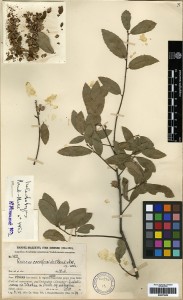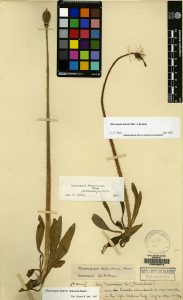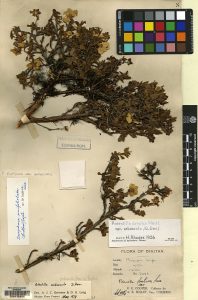4th August 1914 – collections on the day that war was declared between Britain and Germany
On the 4th August 1914 the tension was building during the day as the British Government awaited the response to their ultimatum to Germany. They had asked for assurances that the German Government would respect Belgian neutrality. The response came at 11pm, midnight in Germany, which resulted in the statement from the British Foreign Office that “His Majesty’s Government has declared to the German Government that a state of war exists between Great Britain and Germany as from 11pm on August 4th.” Eight days later, war was also declared on Germany’s ally, Austria-Hungary.
On the 4th August, a world away from the tensions in Europe, Handel-Mazzetti (Austrian), R.E. Cooper (British) and R.J. Farrer (British) were exploring and plant-collecting in China and Bhutan.
Heinrich Raphael Eduard Freiherr von Handel-Mazzetti was born in Vienna in 1882 and he had been on several expeditions in Europe, Mesopotamia and Kurdistan before travelling to Yunnan in 1914. On 4th August he was high in the mountains in North-west Yunnan at 2,500m, where he collected several specimens, including Quercus cocciferoides (right), Strobilanthes hygrophioides and Bryum turbinatoides.
Reginald John Farrer, travelling with William Purdom, was in the far North-west of China, in the Kansu Province and Tibet. On the 4th August in the high alpine turf he found a specimen of Meconopsis (left), later identified as Meconopsis henrici.
Meanwhile, over the border in Bhutan, Roland Edgar Cooper was collecting plants for A.K. Bulley of Ness Gardens, near Liverpool. Born in England and brought up in Scotland with his mother’s half-sister and her husband, the future Regius Keeper of RBGE, William Wright Smith, Cooper had travelled extensively in Sikkim before travelling to Bhutan in 1914. On the 4th August, he collected specimens of Dasiphora fruticosa (right, formerly Potentilla) and Megacodon stylophorus, in the mountains at 13,000ft.



